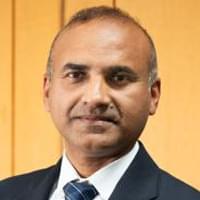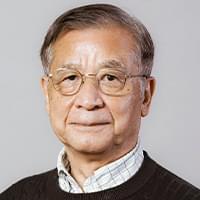- 8 October 2025
- JST 15:00 - 16:30 (GMT+09:00)
- Online
- Simultaneous interpretation
Progress and Challenges of the Asia-Pacific Climate Security Project: How to Address Diverse Risks
The video is released with the original audio only.
Before viewing
This footage is a direct recording of the meeting proceedings, and therefore it contains parts in both Japanese and English.
Please use the YouTube subtitles (CC) function as needed.
- Click the settings icon at the bottom right of the video screen.
- Select “subtitles” → “English (auto-generated)”.
- Under “English (auto-generated)”, select “auto-translate” and choose your preferred language.
Note: For example, if you select Japanese, subtitles will not be displayed for Japanese speech, and only the English portions will be shown with Japanese auto-translation.
We appreciate your understanding and cooperation.
Summary
his session featured presentations on research conducted by IGES’s Asia-Pacific Climate Security Initiative. Following a framing presentation by the first speaker outlining the project, the second speaker explained how climate change impacts the transition to clean energy, which is deeply connected to national security.
The third speaker focused on climate-induced human migration, reporting analysis results from the perspectives of both countries of origin (e.g. Fiji) and destination countries (e.g. Australia and New Zealand).
The fourth speaker, noting the significant impact climate change has on food security, proposed redefining food security. She suggested adding three elements—sustainability, agency and resilience—to the traditional components of food supply, access, stability and availability.
The fifth speaker analysed National Adaptation Plans (NAPs) from various countries, and concluded that the NAPs should better recognise synergies between climate change adaptation and climate security, thereby contributing to the security of local communities.
The sixth speaker pointed out that the opening of the Arctic Sea Route due to global warming will significantly alter the geopolitical security environment.
Finally, the session concluded with a discussion on what is needed for future climate security research.
Summary written by: TSUDAKA Masashi (IGES)
Panel Discussion

OKANO Naoyuki
Programme Officer, UNU-IAS

Nanda Kumar JANARDHANAN
Deputy Director, Climate Change Unit, IGES

FUKUDA Miki
Chief Policy Researcher / Lens Facilitator, Integrated Sustainability Centre, IGES

YAMABE Alice
Policy Researcher, Sustainable Consumption and Production Unit, IGES

Sivapuram Ventaka Rama Krishna PRABHAKAR
Principal Policy Researcher, Climate Change Unit, IGES
Fellow Emeritus, Ocean Policy Research Institute, Sasakawa Peace Foundation

AKIMOTO Kazumine
Fellow Emeritus, Ocean Policy Research Institute, Sasakawa Peace Foundation
Rear Admiral Kazumine Akimoto began his service career in 1967, when he joined the JMSDF. After completing the Command and Staff Course at the Maritime Staff College, he held several positions in the Maritime Staff Office (MSO) and the Operation Evaluation Office. Positions held include: Liaison staff with Patrol and Reconnaissance Force US 7th Fleet; Head, Flight Research and Development Division VX 51; Chief, Intelligence Section of the MSO Intelligence Department; Chief of Staff, Fleet Air Wing. He was assigned as a senior researcher at the National Institute for Defense Studies (NIDS) at the Japan Defense Agency (now Ministry of Defense) in 1995. He retired from JMSDF and resigned from the NIDS in 2000, and joined the Ocean Policy Research Foundation (now, Ocean Policy Research Institute of The Sasakawa Peace Foundation) as a senior research fellow.
He is now serving as Fellow Emeritus of the Ocean Policy Research Institute of the Sasakawa Peace Foundation.

